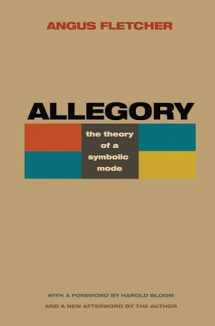
Allegory: The Theory of a Symbolic Mode
Book details
Summary
Description
Anyone who has ever said one thing and meant another has spoken in the mode of allegory. The allegorical expression of ideas pervades literature, art, music, religion, politics, business, and advertising. But how does allegory really work and how should we understand it? For more than forty years, Angus Fletcher's classic book has provided an answer that is still unsurpassed for its comprehensiveness, brilliance, and eloquence. With a preface by Harold Bloom and a substantial new afterword by the author, this edition reintroduces this essential text to a new generation of students and scholars of literature and art.
Allegory puts forward a basic theory of allegory as a symbolic mode, shows how it expresses fundamental emotional and cognitive drives, and relates it to a wide variety of aesthetic devices. Revealing the immense richness of the allegorical tradition, the book demonstrates how allegory works in literature and art, as well as everyday speech, sales pitches, and religious and political appeals.
In his new afterword, Fletcher documents the rise of a disturbing new type of allegory--allegory without ideas.


We would LOVE it if you could help us and other readers by reviewing the book
Book review




